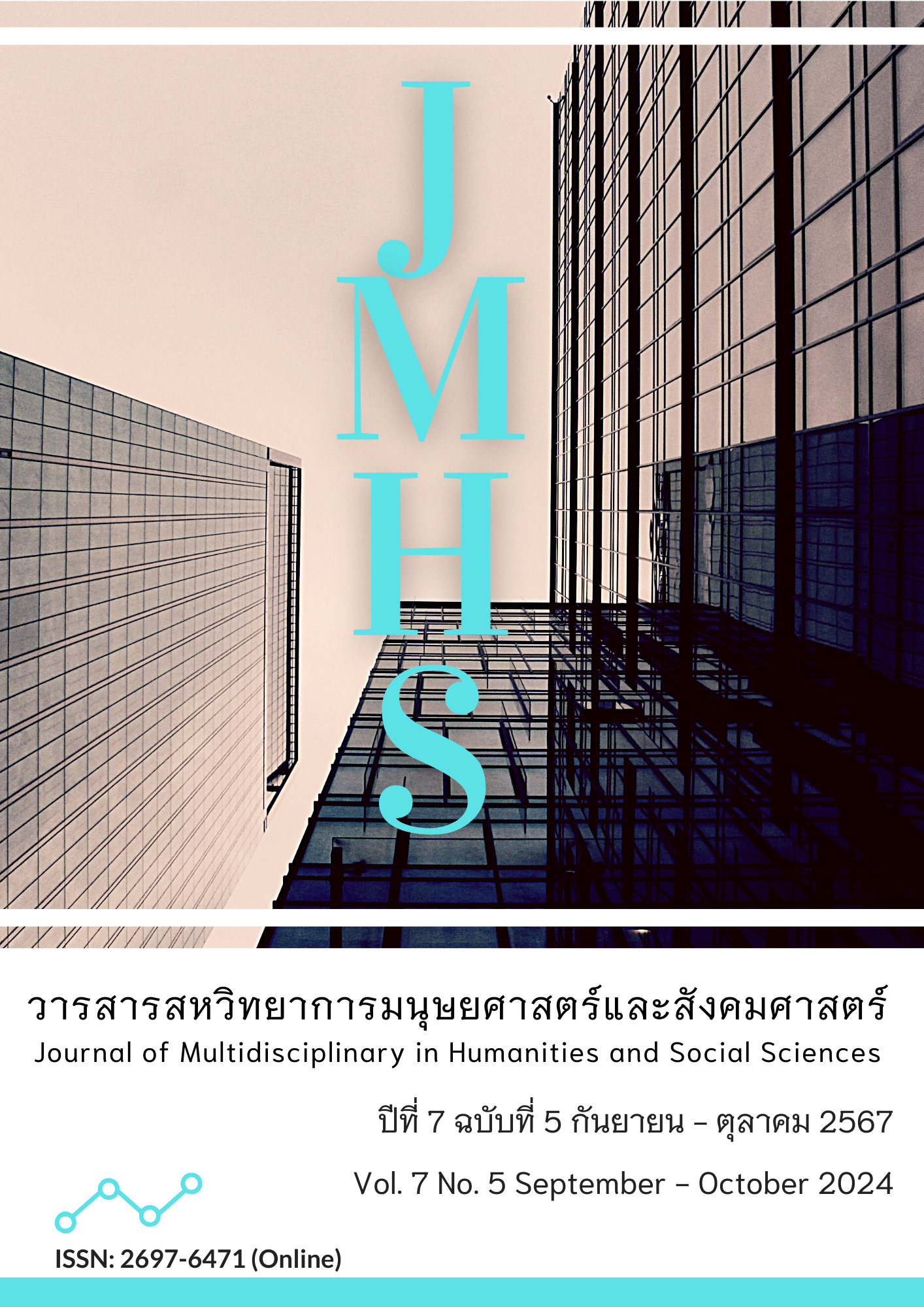รูปแบบการบริหารจัดการระบบนิเวศการเรียนรู้สู่การพัฒนาการจัดการศึกษาของสถานศึกษานำร่องเพื่อความยั่งยืนในพื้นที่นวัตกรรมการศึกษา
Main Article Content
บทคัดย่อ
งานวิจัยนี้มีวัตถุประสงค์เพื่อ 1) ศึกษาองค์ประกอบและแนวทางการบริหารจัดการระบบนิเวศการเรียนรู้สู่การพัฒนาการจัดการศึกษาของสถานศึกษานำร่องเพื่อความยั่งยืนในพื้นที่นวัตกรรมการศึกษา 2) สร้างและตรวจสอบรูปแบบการบริหารจัดการระบบนิเวศการเรียนรู้สู่ และ 3) ประเมินความเป็นไปได้และความเป็นประโยชน์ของรูปแบบการบริหารจัดการระบบนิเวศการเรียนรู้ การวิจัยเป็นแบบผสานวิธีเชิงอธิบายเป็นลำดับ ใช้เทคนิคเดลฟาย โดยการวิเคราะห์เอกสารและงานวิจัย การสัมภาษณ์ผู้ทรงคุณวุฒิ การใช้เทคนิคเดลฟาย และประเมินความเป็นไปได้และความเป็นประโยชน์ของรูปแบบการจัดการระบบนิเวศการเรียนรู้ จากผู้บริหารสถานศึกษา ซึ่งกำหนดกลุ่มตัวอย่างจำนวน 100 คน การวิเคราะห์ข้อมูลโดยสถิติที่ใช้ คือ ความถี่ ร้อยละ ค่าเฉลี่ย และส่วนเบี่ยงเบนมาตรฐาน ผลการวิจัยพบว่า
ผลการวิจัยตามวัตถุประสงค์ข้อที่ 1 องค์ประกอบและแนวทางการบริหารจัดการระบบนิเวศการเรียนรู้ ประกอบด้วย 6 ด้าน ได้แก่ 1) วิธีการจัดการเรียนรู้ 2) การออกแบบหลักสูตรและกิจกรรม 3) การจัดการทรัพยากร 4) ยุทธศาสตร์การดำเนินงาน 5) เทคโนโลยีสารสนเทศ และ 6) ความร่วมมือของเครือข่าย เพื่อให้ส่งผลกับการพัฒนา 3 ส่วน คือ ผู้เรียน ผู้สอน และ ชุมชน ซึ่งในพัฒนาทั้ง 3 ส่วนมีองค์ประกอบของทางการบริหารจัดการระบบนิเวศการเรียนรู้ผสมอยู่ ภายใต้ความร่วมมือของทุกภาคส่วน เพื่อให้ผู้เรียนมีความสนใจในการเรียนเกิดเป็นการเรียนตลอดชีวิต ผลการวิจัยตามวัตถุประสงค์ข้อที่ 2 รูปแบบการบริหารจัดการระบบนิเวศการเรียนรู้ มีความเหมาะสม และผลการวิจัยตามวัตถุประสงค์ข้อที่ 3 การประเมินความเป็นไปได้และความเป็นประโยชน์ของรูปแบบการบริหารจัดการระบบนิเวศการเรียนรู้ พบว่า ความเป็นไปได้โดยรวมในระดับมากที่สุด และความมีประโยชน์โดยรวมในระดับมากที่สุด
Article Details

อนุญาตภายใต้เงื่อนไข Creative Commons Attribution-NonCommercial-NoDerivatives 4.0 International License.
ทัศนะและความคิดเห็นที่ปรากฏในวารสาร ถือเป็นความรับผิดชอบของผู้เขียนบทความนั้น และไม่ถือเป็นทัศนะและความรับผิดชอบของกองบรรณาธิการ
เอกสารอ้างอิง
นวชล สมบูรณ์สิน. (2564). รูปแบบการจัดการนวัตกรรมทางการบริหารในสถานศึกษาขั้นพื้นฐาน(ดุษฎีนิพนธ์, สาขาการบริหารการศึกษา). มหาวิทยาลัยนเรศวร.
พระราชบัญญัติพื้นที่นวัตกรรมการศึกษา พ.ศ. 2562. (2562). สืบค้นจาก https://www.ratchakitcha.soc.go.th
สำนักเลขาธิการคณะรัฐมนตรี. (2562). พระราชบัญญัติพื้นที่นวัตกรรมการศึกษา. สืบค้นจาก https://www.ratchakitcha.soc.go.th/DATA/PDF/2562/A/056/T_0102.PDF
สำนักงานเลขาธิการสภาการศึกษา. (2565). รูปแบบการจัดนิเวศการเรียนรู้ที่เอื้อต่อการพัฒนาศักยภาพของคนไทย 4.0. สืบค้นจาก https://fliphtml5.com/wbpvz/pbyl/รายงานการศึกษารูปแบบการจัดระบบนิเวศการเรียนรู้ที่เอื้อต่อการพัฒนาศักยภาพของคนไทย_๔.๐/
สุรัตน์ แท่นประเสริฐกุล. (2564). ระบบนิเวศนวัตกรรมในโรงเรียนที่พัฒนานักเรียนนวัตกร (ปริญญานิพนธ์ กศ.ด.). มหาวิทยาลัยศรีนครินทรวิโรฒ.
อภิชญา สวัสดี, ศศิธร หาสิน, & กัลยารัตน์ สุขนันท์ชนะ. (2565). แนวทางการจัดระบบนิเวศการเรียนรู้ภายในสถานศึกษารองรับการเรียนรู้เชิงรุก. e-Journal of Education Studies, Burapha University, 4(4), 67-78.
Autio, E., & Thomas, L. D. W. (2019). Value co-creation in ecosystems: Insights and research promise from three disciplinary perspectives. In S. Nambisan, K. Lyytinen, & Y. Yoo (Eds.), Handbook of digital innovation (pp. 20-32). Edward Elgar.
Fayombo, G. A. (2012). Active learning strategies and student learning outcomes among some University students in Barbados. Journal of Educational and Social Research, 2(9), 79-90. https://doi.org/10.5901/jesr.2012.v2n9p79
Jucevicius, G., & Grumadaite, K. (2014). Smart development of innovation ecosystem. Procedia – Social and Behavioral Sciences, 156, 125-129. https://doi.org/10.1016/j.sbspro.2014.11.133
United Nations Development Programme [UNDP]. (2019). Human development report 2019: Beyond income, beyond averages, beyond today: Inequalities in human development in the 21st century. New York: USA.


